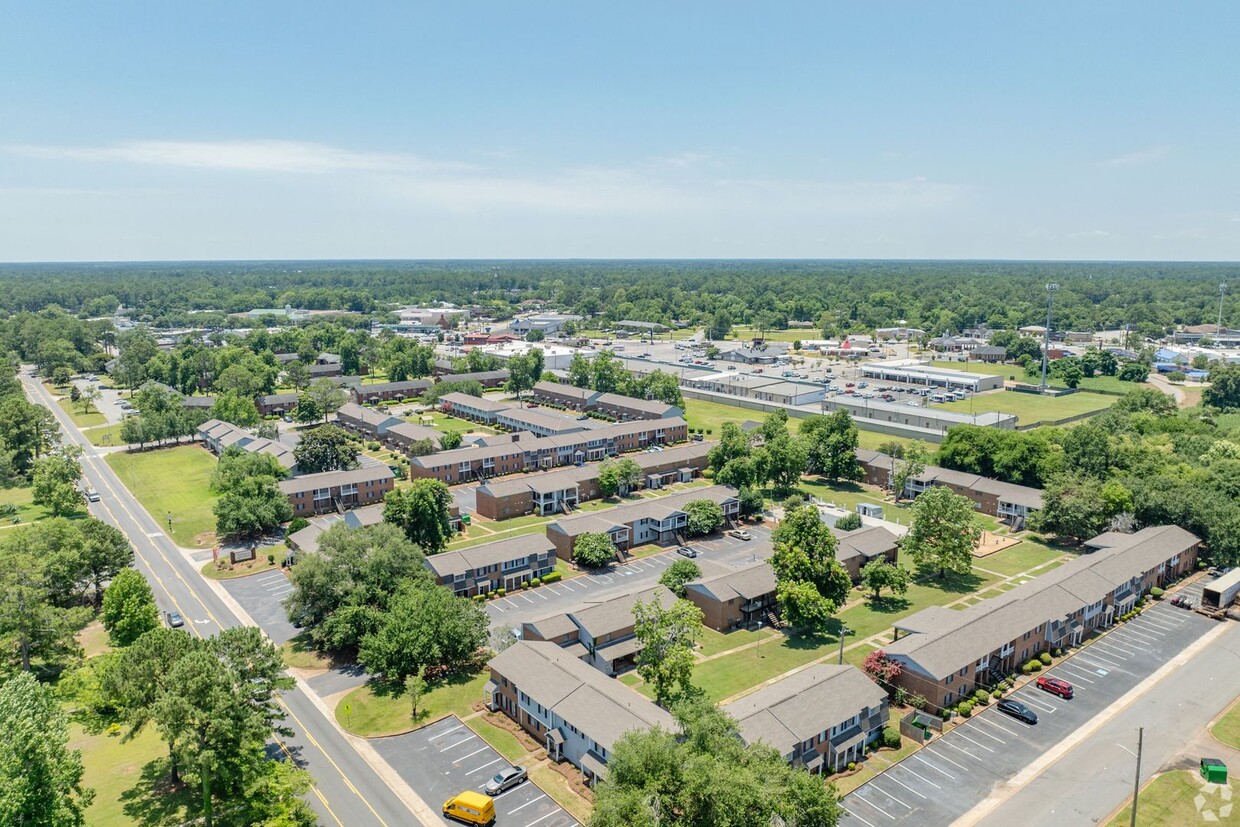3 Basic Tips For Real Estate Investors
3 Basic Tips For Real Estate Investors
Here are some great tips for real estate investors to pay heed to. You will get to know what a few seasoned real estate investors have to say about investing in real estate through different market conditions and types of real estate markets.
Real Estate Investment Tips For Beginners
Sometimes real estate investing for beginners can seem a bit intimidating and it’s easy to get lost in the lights and sounds of all the blogs, books, and podcasts from successful real estate investors. The single most important first step for aspiring real estate investors is to determine one’s exit strategy, according to Andy Heller, author of “Buy Low, Rent Smart, Sell High.” There are quite a few options, but the two basic strategies are to buy and hold rental properties and become a landlord, or to become a flipper and hopefully make a substantial profit upon the sale of the property.
“You need to ask yourself what characteristics will make that exit strategy work. You need to buy the right property to be successful,” says Heller, who has specialized in the Atlanta real estate market for decades.
Like any investment, real estate investing requires an action plan. “Once you decide you want to scale it, it is important to look at the funds, the time, your credit, and your long-term goals so that what you want to do is achievable and realistic,” Heller says.
His recommendation for novices is to join a local investor’s club and get to know the people there. “It’s rare that you can find somebody who can start up in real estate without some guidance. My advice to a new investor would be to join an association, find seasoned investors, buy them lunch and present your plan. Ask them to poke holes in it.”
Scott Mednick, president of OCRE forum, a real estate investor club, and founder of Marblehead Group Inc., agrees. But he also has a warning for novices looking for information on how to get started in the business.
“The other side of the fence in this business is that people get sucked into these $40,000 to $50,000 boot camps,” Mednick says. “Don’t do those. You’re going to end up buying things you don’t need. If you’re new in the business, the best advice I can give is to go to a local bookstore and read through books on real estate investing. Find the best one or two books and buy those.”
Tony Alvarez has worked in the Southern California real estate business for decades. Alvarez says all real estate investors are aiming for “that moment in time where we have accumulated enough income-producing real estate to provide us with a comfortable standard of living, regardless of economic conditions or political nonsense.”
For people new to real estate investment, Alvarez advises first determining which type of real estate investing they want to get into and why. Then they should choose a specific target market and study it intensely. Next, set a goal, form a business plan, and establish systems to achieve the desired goal. Lastly, investors should take small, common-sense steps daily toward achieving that goal, such as talking with sellers, owners, and local real estate professionals.
Tips For Seasoned Real Estate Investors
As for veteran investors, these longtime professionals have some sage advice for them as well. Heller’s advice for seasoned investors may be surprising, especially since these people are already at the top of their game.
“It’s to stay humble,” Heller says. “Humility is a huge asset and a huge skill for any businessman. In investment real estate, I see investors all the time who think they walk on water. That hurts them sometimes in the buying process, and it hurts them if they rent their properties. The lack of humility will eventually cost them money.”
Next, Heller says investors should have plenty of money put aside to act as a buffer of sorts. Once an investor has scaled out to a larger portfolio of properties, it is important to have enough cash on hand to rehabilitate 10 to 15 percent of those properties every year.
“Be prepared. Plan for the best, but prepare for the worst,” Alvarez advises. “Insurance is true asset protection. Investors should insure themselves as if the world is coming to destroy them and insurance is their only defense.”
In the end, Alvarez says true enemies to wealth creation include greed, procrastination, laziness, imagined fears, and lack of information and education, to name a few.
From a flipper’s perspective, Mednick says seasoned professionals need to stay focused on location and price. “The best advice is don’t overpay for what you’re buying, because you’ll get squeezed on the back end by buyers,” he recommends. “If you overpay and over-rehab, you’re not going to make the profit you need.”
Buyers still want a good deal in this market, so they are being pickier. They want to see more properties, and time is on their side so they are not pulling the trigger as fast. They want to make sure they have a good location.
In addition to building personal relationships with real estate professionals, potential deals can be found using online resources such as NoradaRealEstate.com, RealtyTrac.com, and Auction.com, as well as local and national listing services.
Tips For All Real Estate Investors
To Heller, the biggest appeal of investing in real estate is that there are many ways to make money in real estate by leveraging money – whether it’s the investor’s own money or someone else’s.
Alvarez says deals are still available. “Forget the past and stop waiting. Learn to look where you never have. Think ‘creating’ a deal, not ‘finding’ a deal.”
Lastly, investors should not be afraid to adopt multiple exit strategies when circumstances call for it.
How to Start Real Estate Investing as a Beginner?
Once you have gone through all the basic education and made up your mind, it is time to start your investment journey step by step. If you don’t have experience, we’ve recommended choosing a residential real estate investment. If you have experience managing commercial properties, then commercial wins over residential. If you have limited cash or low-risk tolerance, then we recommend residential real estate. Here’s what you need to do to start investing in real estate in any market. These steps are mainly for residential real estate.
- The initial step is finding the right location, i.e., if your location is great then your investment property will give you a good and stable return on your investment.
- Before beginning this journey, you should take advice from your local real estate agents and investors. In case of any uncertainty of thought always consult real estate professionals.
- You should continue finding off-market discounted properties. You should know the selected housing market inside and out. The business of real estate investing accompanies risk. Going in aimlessly and not recognizing what you are risking in detail is a brisk method to flop as a real estate investor.
- Learn about the risks involved in real estate deals. Every type of deal has its risks. Rental units require management, and repairs, and sometimes delinquent renters require eviction.
- Don’t just grab the first investment property you find. Find various investment properties and afterward choose which suits you the best in terms of your investment goals.
- You must learn to have a great comprehension of tax reductions for real estate investors because this will help you in the long run. Hire an accountant to assist you in the time-consuming task of dealing with complicated real estate taxes and exemptions. Take advantage of the expertise of professionals to make the job easier, and also educate yourself along the way.
- Continuously consider various sources when looking to buy an investment property and search for the best markets and make a point to get in contact with local real estate investors.
- Always check your credit report and your capacity to finance real estate investments. To be a successful real estate investor, you also need to find a good bank and loan broker. Successful real estate investors know that having good financing options is key to making any investment. It’s a good idea to build relationships with lenders (traditional banks or hard-money lenders) to move fast on getting financing. Without financing, you will drain all your savings. Lenders generally want at least 20 percent down and credit scores in the mid-700s. You need to learn how to use others’ money as leverage and build up your equity fast.
- Know your market and comprehend all real estate needs. A successful investor will build an extensive real estate network made up of other real estate investors, property sellers, property buyers, real estate professionals, or anyone who shares your common interest in the real estate investment niche.
- Real estate investment clubs provide education resources, mentors, and networking opportunities. Join at least one real estate investment club in your area. A real estate investment club can become a great resource for buying and selling properties. If your niche is to buy rental properties, and another investor in the club is seeking to find investors for his turnkey rental properties, you can directly do business with them.
- Do an appropriate screening process with tenants in case of rental property investment.
- Real estate investing is a business. Begin by building up a decent business plan, specifying the subtleties of beginning and maintaining your real estate investment business, with realistic objectives over the time frame of one, three, five, and 10 years.
- Start investing in single-family homes and as your cash flow and equity increase, you can move up to duplexes, triplexes, fourplexes, and eventually apartment buildings. Eventually, you can build a real estate empire and own a portfolio of residential units.
- Some new investors wrongly limit their interest to real estate markets close to their homes. But often better real estate markets may be located a little further away. Always consider going out of state to invest in the best real estate markets.
- To get the best help it is proposed that you hire a good and reliable real estate attorney. A lawyer can help you with understanding complicated real estate laws.
- Before a new investor does anything, it is best to frame a business plan to identify risk and the investor’s ability to finance the investment (flipping or renting) until the point that it is until it is stabilized or sold. The business design must likewise clarify how deals will be valued.
Conclusion
In real estate, once the market begins to bounce back, investing in real property likewise turns into an all the more engaging thought – either as a profession or an awesome side job. Like any other undertaking, however, there’s a correct way and a wrong approach. Successful real estate investors aren’t made overnight.
It’s not easy to succeed in real estate investing. Getting lucky on one investment does not amount to becoming a successful real estate investor. The only way to become a successful investor is to educate yourself and follow the path of successful real estate investors who have already made it there.
There’s an old rule in poker: if you play for 20 minutes and can’t figure out who the sucker at the table is, then it’s you. The same is valid for real estate investing. If you don’t know the metrics of your proposed real estate investment, you have almost no chance to be a successful real estate investor. To succeed in your first real estate investment, go at a moderate pace, learn much, and be ready to leave any enticing opportunity that comes your way. In short, do not make hasty decisions out of temptation. Money lost in a bad investment cannot be recovered so easily.
Contrary to what you may have heard, this is the best time to buy a property. Always do your homework and don’t be afraid to invest in real estate during a recession.
Bottom Line : Real Estate – The safest investment in the world.
Why venture down this road alone. Rely on those that know the business, We live it and breath it – at SIMM Capital our investment strategy is to seek the best assets that hold the largest opportunities to improve on management and value, delivering in rent growth year over year that will result in cash out refinance events and high quality returns. We know the business. To see how we can help you click the link – www.simminc.com




Recent comments